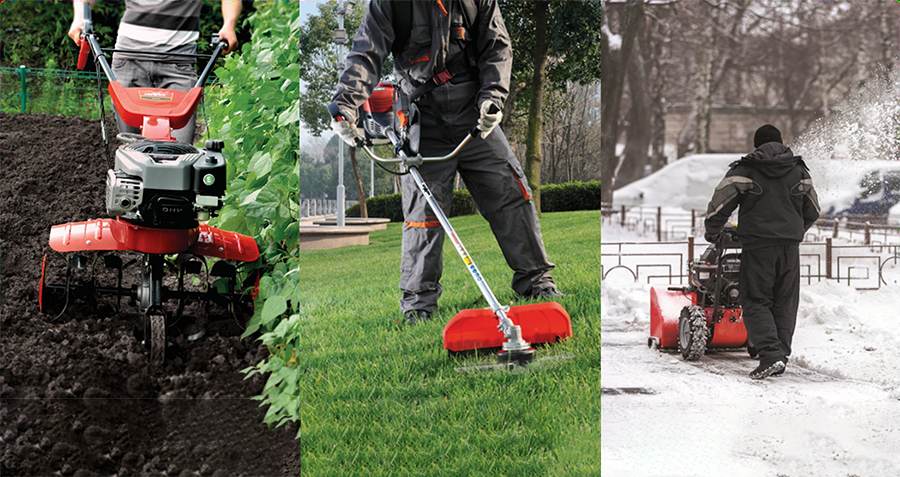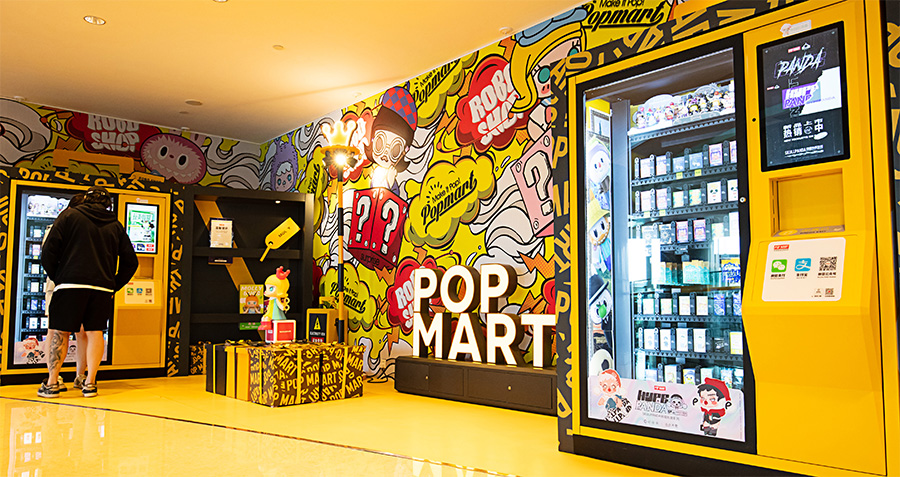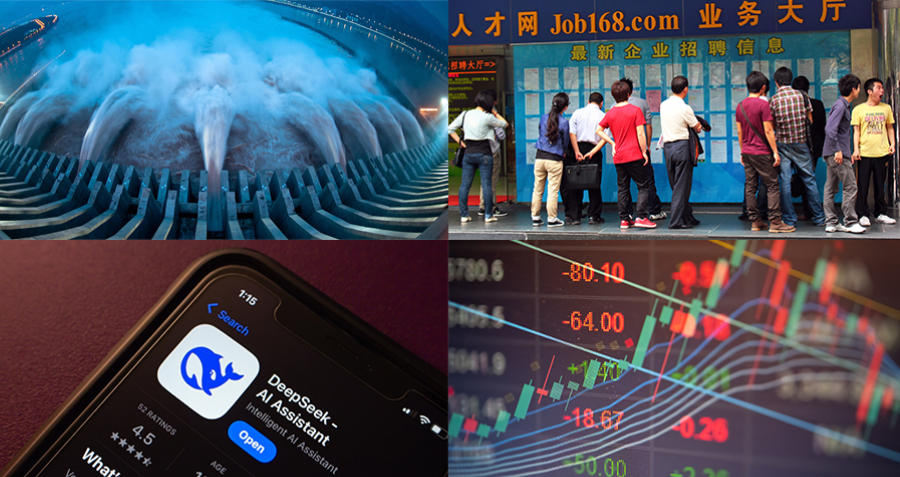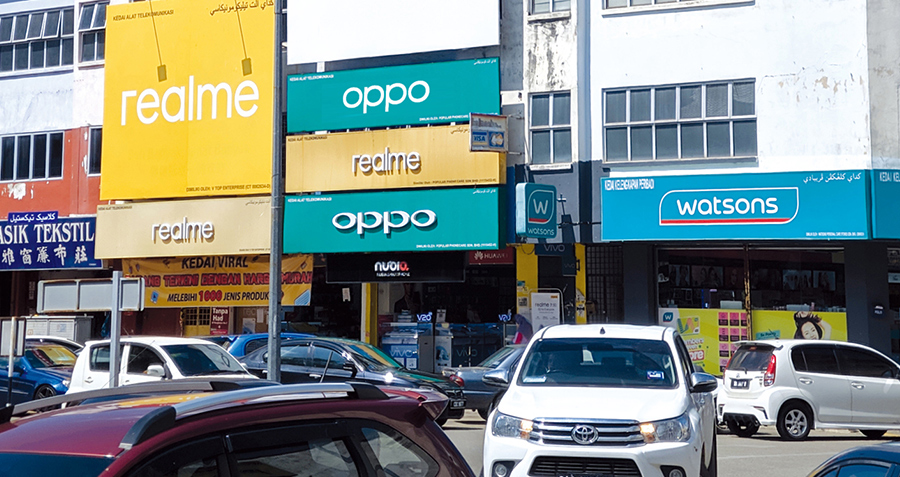Ye Xiaobo, the founder of DAYE, spent some time in Australia in 1994 and spotted a business opportunity. Almost every Australian family has a garden, and hiring people to maintain the grass can be a considerable expense; as a result, most people choose to buy home lawn mowers and watering equipment, preferring to do the work themselves.
The same gardening culture is popular in Europe and the United States, with a clean and tidy lawn representing an orderly family to the community as a whole. In many places, there are now regulations under which failure to properly maintain a garden can lead to fines and lawsuits. After an in-depth market study, Ye returned to China and co-founded DAYE with his father, Ye Deshen, and brother, Ye Xiaodong. Taking advantage of the established supply chains in eastern China’s Jiangsu and Zhejiang provinces, they invested in Ningbo DAYE Garden Industry Co., Ltd, which then and now focuses on agricultural, forestry and horticultural irrigation and spraying products.
In 2006, Ye invested $1.08 million to create a subsidiary, Ningbo DAYE Garden Equipment Co., Ltd., to enter the lawn mower industry, and began the R&D and production of four-stroke gasoline engines, high-grade garden mowers, garden pruning shears, grass beaters and other garden machinery products.
In the garden machinery industry, the European and American markets occupy more than 80% of the market demand. So for DAYE, globalization was all or nothing. With this in mind, DAYE has always been focused on overseas markets, rather than the domestic China market.
In the early stages (2006-2016), DAYE focused on the European market with traditional lawnmower products. Compared to the US market, the European market had lower barriers to entry as well as quality manufacturers and channel players to work with. DAYE, therefore, was able to accumulate real-world experience with less risk and more easily take that first step.
Of course, the nascent DAYE also faced multiple challenges: firstly, there are certain resource requirements for companies to succeed in the industry, i.e a sufficiently large manufacturing site, metal punching machines, injection moulding machines etc; secondly, businesses need to have significant financial strength, especially for large-scale operations, with only large asset firms being able to meet the strict payment cycle requirements of overseas partners; finally, the core technology needs to be solid, and this was something that Ye immediately spotted as an area for improvement and overseas sales channels also needed further expansion.
In response to these challenges, DAYE created the “three peaks” development strategy formulated by the chairman, Ye Dechen, that is, “hire the best, work with the best and become the best.”
Firstly, “hire the best.”
- The company recruited senior engineers in the field of garden machinery and for its core business development, establishing a highly professional talent team.
- The company holds itself to a high standard in the application of new technologies, new materials, new processes, and has improved its scientific and technological innovation capacity;
- The company cooperated with top domestic and internationally renowned scientific research institutes to co-develop intelligent garden machinery products.
Through its long-term prioritization of R&D investment, the company’s achievements have been remarkable. In March 2006, the company launched its first generation of lawn mowers; in 2009, it applied for patents related to various fuel, AC and lithium products; and as of the end of 2023, the company has held a total of 219 patents, including 72 for inventions. From 2016-2023, the company’s R&D investment CAGR was 14.7%, and the annual R&D expense ratio was consistently over 3%; the company’s R&D personnel as a percentage of the total number of employees has always remained above 14%.
Secondly, “work with the best.”
From parts to products to sales channels, the company has cooperated with major European partners and world-renowned garden machinery manufacturers to make use of others’ strengths to make up for its own weaknesses. The global garden machinery market as a whole is monopolized by large brands that find it easy to defend their position as market leaders, and these co-operations were significant for DAYE’s growth trajectory.
Early on, DAYE gained access to major sales channels through OEM work for internationally renowned brands. DAYE understood that only by co-operating with high-level, quality customers could it continuously improve its technical ability and after-sales service, and lay the foundation for subsequent development.
Since 2007, DAYE has been cooperating with the world’s largest manufacturer of gasoline engines for outdoor power equipment, Briggs & Stratton, to purchase resources such as gasoline engines, lithium-ion batteries and other components required for production; in 2008, DAYE supplied HECHT, the largest supplier of garden machinery in the Czech Republic; in 2009, DAYE became the largest supplier for Makita of Japan, a well-known electric power tools manufacturer; this was followed by cooperation with Husqvarna of Sweden.
And finally, “become the best.”
To make one’s way as a major player in a mature industry, a company needs to have high production standards. Since its inception, DAYE has always maintained a high degree of care in this regard. The company has passed ISO9001 quality management, ISO14001 environmental management and OHSAS18001 occupational health and safety management certifications.
In recent years, DAYE has also begun to participate in the development of national and even international standards. The company has so far played a role in formulating 37 standards, including 15 national standards, and is a member of the China Forestry Machinery Standardisation Technical Committee.
In September 2014, DAYE Europe was founded in Germany with the philosophy of “Wherever our customers are, we are.” As the first overseas subsidiary of DAYE, the European branch has several responsibilities: gathering market intelligence, collecting information on customer needs and providing after-sales service in the European market.
The establishment of overseas subsidiaries has improved the response speed of after-sales service and provides customers with better feedback and a greater sense of security. After years of market development and customer accumulation, the company now has a more complete marketing network system, after-sales service system and high-quality customer matrix in the European garden machinery market. This has helped the overall stability of the company and solidified the company’s industry position amid fierce global competition.
After achieving initial success in the European market, DAYE began to shift from manufacturing to manufacturing and services, gradually setting up overseas factories and marketing centers, and expanding its reach to the United States.
The US is the world’s largest consumer market for garden machinery products. According to GrandViewResearch, the US buys nearly 8 million lawnmowers each year, with a total spend of $9 billion. To become a global industry leader, DAYE needed to enter and succeed in the North American market.
In 2017, DAYE established a wholly owned North American subsidiary. In 2018, it signed a framework co-operation agreement with Walmart to help it scale its US sales numbers, a partnership that brought about rapid growth for the company. In 2019, this partnership led to increased revenues while providing strong sales channel support. The following year, DAYE established a warehouse in the United States. In 2021, DAYE began to supply Home Depot (the world’s largest home improvement provider), further accelerating penetration of DAYE in the US market. In 2022, revenue drawn through Home Depot was approximately $140 million, or nearly 8.82% of total DAYE revenue.
It’s worth noting that, while partnering with these major retailers has been a positive for DAYE, it does mean that the company is dominated by their demands. Therefore, the company identified the need to reduce its dependence on these major customers by developing its own brands and expanding its own sales channels.
In addition to meeting Walmart and Home Depot’s supply requirements, DAYE has been building an after-sales service network in North Carolina since 2018. In 2020, the company built a warehouse in South Carolina, and set up its own logistics and warehousing system and direct-to-consumer (DTC) model, whereby US customers could receive delivery directly from DAYE after an order was placed at Walmart or Home Depot.
In 2021, utilizing its US warehouses, DAYE set up production lines that sourced local parts, engines and offered local assembly, significantly enhancing localized operation and service capabilities, shortened supply cycles, reducing costs and increasing efficiency. At the same time, it was also able to obtain the lowest tariff rate in the “dual anti-dumping and countervailing duty” initiatives run by the US Department of Commerce.
Starting in 2022, DAYE began building a plant in Mexico. Because of Mexico’s involvement in the USMCA (US-Mexico-Canada Agreement) trade agreement, Mexican factories are able to take advantage of preferential tariffs and convenient trading conditions in North America. Compared with China, Mexican factories have higher land and labour costs, as well as legal and political risks that need to be navigated and avoided. But exclusive reliance on Chinese factories can be costly for firms and volatile shipping conditions can impact business in the US.
After weighing the options, DAYE decided that a combination of one large factory in both China and Mexico, plus a domestic production line in the US, would both increase the flexibility of supply and reduce operating costs.
The Mexican plant became the last important piece in the jigsaw puzzle of DAYE’s global layout.
Upgrade: Acquisition of Germany’s AL-KO, another overseas challenge
By 2021, DAYE’s arrangements in the North American and European markets had begun to take shape. The question then became how the company could further boost performance. DAYE’s choice was to redirect its attention to Europe.
In September of 2024, DAYE announced the acquisition of 100% of the German garden machinery company AL-KO Geräte GmbH (AL-KO) for €20 million ($23.53 million).
AL-KO has been in the garden machinery industry since 1958 and has a range of well-known brands and sales companies across 18 European countries and the US, as well as direct sales teams throughout Europe and Australia. AL-KO’s revenues in 2023 were €230 million, 1.9 times the annual revenues of DAYE in the same period, and in H1 2024, it reported revenues of €150 million and a net profit of €10.06 million.
After the acquisition, DAYE had secured a localized manufacturing base in Europe, further improving the globalization of its manufacturing base, helping to quickly expand its brand and sales capacity in the European and ANZ markets. At the same time, the acquisition also provided DAYE with a technology development centre in Europe, which was conducive to further expanding the company’s market influence, helping development and branding, as the company now owned the well-known brands AL-KO, SOLO, Masport and MORRISON, among others, in the US and European markets.
Ye Xiaobo said that during the acquisition, the key consideration was that the purchased brand and DAYE should be able to quickly identify complementary advantages to help increase market share in Europe. DAYE is also planning similar acquisitions in the US.
Also around this time, DAYE’s existing brand MOWOX began offline sales in Europe, as well as opening an online shop and an Amazon store.
Whether you own, lease or acquire a brand, the ultimate goal is to increase market share and improve revenue. In the future, DAYE plans to strengthen its brand, develop its multi-brand portfolio, position its own-branded products as specialized, mid-to-high-end and boutique products, continue to expand the proportion of its own-branded products in its sales, and increase the company’s global visibility and brand influence.
DAYE also has three subsidiaries in Singapore, as well as production bases in Thailand under said subsidiaries. Further to this, it has now completed a production base in Hangzhou and its US warehouse assembly plant. These now form the backbone of the company’s global production abilities.
This multi-country approach gives the company the ability to be flexible when it comes to regional production, optimize transport costs and more easily respond to fluctuations in international trade policies. On top of this, the company’s innovative products and distribution channels enhance the company’s growth potential and market share.
DAYE did not have a first-mover advantage in China or elsewhere, but in just under 20 years, the brand grew into what can be considered a “hidden champion,” with its subsidiaries and partners being the more consumer-facing elements. To do this, it specialized, utilizing strong R&D capabilities and continuous innovation to make it to the top, even as a latecomer.
DAYE’s initial customers and those who partnered with the company were acquired through the company’s participation in industry exhibitions, such as the Canton Fair, where DAYE could demonstrate the quality of its products, despite its lack of brand recognition. Once interested, the customers were further impressed by DAYE’s production quality, product certifications, capacity and prototype testing.
By following the “hire the best, work with the best and become the best” mantra, the company has become a major player in the industry and continues to strengthen its business relationships on the basis of high levels of trust. DAYE has also responded well to potential tariff problems by building factories overseas to ensure supply and to stabilize market share.
Watch: New challenges for globalized operations
DAYE has gradually grown from an OEM manufacturer to an independent brand, and has successfully expanded into overseas markets, with its products being sold in more than 50 countries and regions, including Europe and the United States. The case of DAYE has a certain universality, and is very relevant for other Chinese manufacturing enterprises looking to go overseas, as well as for their transformation and upgrading.
Looking ahead, DAYE still has its sights set on further expansion, looking to grow into a real industry leader, but will face a number of challenges in doing so.
Firstly, since 2022, there have been bans on the sale of fuel-powered outdoor power equipment (OPE) in many countries in Europe and in the US. This has accelerated the need to develop the lithium-ionisation of OPE. The US and Canada have provided a certain transition period to phase out fuel OPEs, while the UK government has called for a ban on the sale of them by the end of this year.
At present, the penetration rate of lithium OPE sales in North America and Europe has reached 36% and 42%, respectively, and will increase rapidly in the future. For DAYE, which mainly sells fuel equipment, the regulatory ban is likely to present a major challenge to the company’s business.
This leads into the second issue, which is how DAYE can compete in the lithium market when competitors have a sizeable head start. Domestic competitors such as Chuangke Industry and Quanfeng Holdings, in 2020, already held 20.4% and 11.4% of the global lithium OPE market, and market concentration is already high, making it easier for these companies to benefit from the Matthew Effect—the tendency to accrue social or economic success in proportion to initial levels of popularity and wealth. DAYE, in comparison, is still in its infancy in terms of OPE market share.
In addition, other latecomers cannot be ignored. And DAYE still needs to complete the transition from fuel to lithium, overcoming lithium technology barriers while continuing to maintain its overall advantages in the sector.
Third, there are challenges posed by business expansion, such as overseas plant construction and overseas mergers and acquisitions. Overseas plant construction and overseas M&A have exposed DAYE to high debt ratios, cash flow constraints, exchange rate risks and resource integration issues. Funding pressures are on the rise, DAYE’s gearing has been rising consistently in recent years.
Trade friction between the US and China and changes in policy have made overseas factory building highly uncertain. In particular, the cost of building a plant in Mexico is increasing year by year, and operating costs are likely to have surpassed those in China, this requires a certain level of financial solidity for companies to survive. Also, in terms of M&A integration, AL-KO’s business is spread all over the world, and there are huge differences between China and elsewhere in terms of laws, taxes, business habits and local culture.
With the acquisition of AL-KO now completed, the test will be whether DAYE’s comprehensive management capabilities and global pool of expertise can adapt. DAYE is likely to continue to face challenges in integrating the assets of both parties, business interfacing and staffing arrangements. It is also worth watching how DAYE completes the transition from OEM to original brand manufacturer (OBM) by using the brands under the AL-KO Geräte umbrella.
By Weilei (Stone) Shi, Professor of Practice in Strategic Management, CKGSB
Mengjun Li, Senior Researcher of the Case Center, CKGSB





















